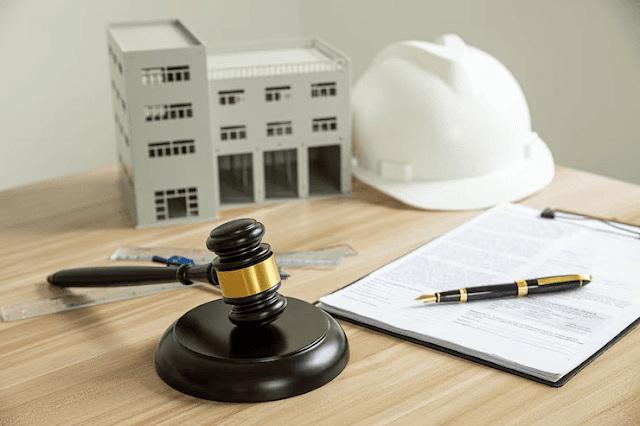Construction Contracts Gone Bad: How a Litigation Attorney Can Help
In the construction industry, even the most carefully planned project can spiral into legal trouble when contracts break down. Disputes over payment, defects, delays, or performance are not uncommon, and for builders and contractors, the financial and reputational stakes are high. When tensions escalate and resolution seems out of reach, turning to a Construction Litigation Attorney becomes more than a smart move—it becomes a critical lifeline. These legal professionals specialize in navigating the complex world of construction law, helping contractors not only protect their rights but also recover damages or defend against unjust claims.
A construction litigation attorney brings in-depth knowledge of contract law, licensing regulations, building codes, and dispute resolution strategies that are uniquely tailored to the industry. Unlike general attorneys, they understand how construction projects are structured—from the bidding process to change orders, lien laws, and claims involving multiple stakeholders. For builders and contractors, this expertise means faster resolutions and a stronger position when dealing with developers, property owners, subcontractors, or even other builders. When a contract fails, having an experienced advocate on your side ensures you're not left bearing the full brunt of a failed agreement.
Understanding the Common Causes of Contract Disputes
Most construction contracts start with a clear scope of work, deadlines, and budgets, yet countless variables can push a project off track. Changes in materials, design alterations, unexpected site conditions, and supply chain disruptions are just a few of the factors that can cause complications. These issues often result in delays, cost overruns, and disagreements over who is responsible. In many cases, the contract doesn’t account for every possible scenario, leading to disputes over interpretation or performance.
For builders and contractors, the risk is compounded by unclear language, vague responsibilities, or rushed agreements made under pressure to win the job. One of the most common missteps is failing to define how changes should be documented and approved. What begins as a small deviation can quickly evolve into a dispute over scope, cost, or quality. Without strong legal language to guide the resolution, both parties are left vulnerable. This is where a construction litigation attorney can step in, evaluating your contractual rights and liabilities, and providing the legal tools necessary to enforce or defend your position.
Another major issue is nonpayment. Builders and subcontractors often deal with clients or developers who delay or withhold payment, citing alleged defects, delays, or breach of contract. Without timely legal intervention, cash flow disruptions can jeopardize ongoing projects and put your business at risk. An attorney can help you secure liens, initiate legal claims, or negotiate a settlement that ensures you’re compensated fairly for your work. Whether you’re pursuing or defending a claim, legal support is essential to navigating the process and minimizing damage.
Navigating Construction Defects and the Right to Repair Act in California
For California-based contractors and builders, navigating the complexities of defect claims requires a firm understanding of the Right to Repair Act in California—also known as SB 800. This legislation sets forth the procedures and timeframes for handling construction defect claims in residential property. If a homeowner or developer alleges a defect in construction—ranging from water intrusion to electrical, structural, or mechanical issues—the law requires that they follow a defined pre-litigation process before filing a lawsuit. That process includes providing written notice and allowing the builder the opportunity to inspect and offer repairs.
For contractors, understanding and properly responding under the Right to Repair Act is crucial. Many builders don’t realize that failure to follow the procedures outlined in the Act can result in loss of the right to repair or defend the claim on procedural grounds. A construction litigation attorney with experience in California law can guide you through the response process, ensuring that inspections, communications, and repair offers are handled according to legal requirements. This can often de-escalate disputes before they head to court and protect your company from unnecessary liability.
Equally important is ensuring your contracts and warranty documents are aligned with the Right to Repair Act. Poorly worded warranty clauses, improper disclaimers, or missing notices can create exposure and limit your ability to manage defect claims. An attorney can review your agreements to ensure they meet compliance standards and provide a fair process for resolving defect allegations without litigation. When a defect claim arises, having a lawyer who understands both the construction process and the statutory obligations under California law can make the difference between a manageable issue and a full-blown lawsuit.
How Legal Representation Can Protect Builders' and Contractors' Interests
Builders and contractors face a unique set of legal pressures, from tight deadlines and budget constraints to managing multiple vendors and complying with regulatory codes. When things go wrong, those pressures can quickly escalate into litigation. A construction litigation attorney becomes your advocate in these high-stakes situations. Whether defending your work against baseless claims or pursuing unpaid invoices, an attorney can help shift the balance of power in your favor. They will investigate the facts, gather documentation, and build a strong legal strategy grounded in the contract terms and the facts on the ground.
For contractors especially, dealing with project owners or developers who have greater financial or legal resources can feel intimidating. An experienced attorney levels the playing field by asserting your contractual rights, filing mechanics liens, or initiating arbitration or mediation to resolve disputes. This proactive approach often leads to better settlement outcomes and avoids drawn-out courtroom battles. Moreover, a lawyer can advise you on what to document during projects to better defend against potential claims, including site logs, change order approvals, and inspection records.
Legal representation is not just about defense—it’s also about risk prevention. Many contractors only reach out to an attorney when things go wrong. But involving legal counsel early, particularly during contract negotiation or project startup, can help you avoid costly errors. A litigation attorney with construction experience can draft or revise agreements to close loopholes, add clear dispute resolution procedures, and protect you against liability traps. In this sense, legal guidance is just as much about future-proofing your business as it is about solving current problems.
Planning Ahead: Contracts, Compliance, and Communication
To reduce the likelihood of contract disputes, builders and contractors must prioritize proactive legal planning. This means working with legal professionals to develop a library of reliable contract templates tailored to your services and risk profile. These documents should clearly outline responsibilities, payment schedules, change order processes, dispute resolution mechanisms, and indemnification clauses. Standardizing these elements not only improves efficiency but also reduces legal ambiguity that can lead to conflict.
In addition to better contracts, maintaining compliance with local, state, and federal construction laws is essential. From licensing to safety regulations and environmental standards, a misstep can result in fines, delays, or lawsuits. A construction litigation attorney can help keep you on top of evolving legal requirements and identify compliance risks before they become liabilities. Consistent communication—both internally and with clients—is another crucial element. Clear records of meetings, agreements, and approvals become invaluable if a dispute arises.
Conclusion: Why Legal Support Matters in Construction
In an industry where margins are tight and timelines are unforgiving, legal disputes can derail even the most experienced contractors. Whether it’s a disagreement over payment, claims of poor workmanship, or misunderstanding of contract terms, the fallout from a failed construction contract can be devastating. Working with a qualified Construction Litigation Attorney gives builders and contractors the legal insight and strategic support they need to protect their business and reputation.
Understanding critical legislation like the Right to Repair Act in California, managing defect claims properly, and having airtight contracts are all part of doing business smartly. Legal issues in construction aren’t just about damage control—they’re about building a resilient business that can grow confidently and withstand challenges. If you’re facing contract issues or want to prevent them before they start, getting legal help isn’t just recommended—it’s essential.


.png)

Comments
Post a Comment